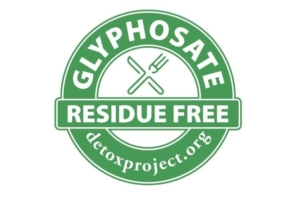Consumer interest in where their food comes from, who made it, and how it was processed is growing. According to our latest study, 52% of Americans report that their interest in knowing where their food comes from increased in the last year. This blog explores why food production practices are growing in importance among consumers and which production practices have the most awareness among consumers.
NATURE KNOWS BEST
85% of Americans agree that how their food is farmed and produced impacts the quality of their food. And with a growing shift towards the belief that ‘nature knows best’ for our wellness, consumers are seeking foods that are more ‘natural’ including naturally farmed and minimally processed to deliver a product that is as close to what nature intended it to be.
Having reassurance that their food is produced ‘naturally’ is important 4 in 10 of Americans who report this is the top factor when deciding which foods to purchase. And, although ‘all-natural’ is a highly subjective area for claims, making ingredient choices, processing methods, and communication that align with this consumer sentiment can pay big dividends for brands.
CONSUMING MORE RESPONSIBLY
There’s a growing sense of concern and responsibility among consumers about how our food consumption is impacting the future of our planet. 62% of Americans agree that if we don’t change how we produce food we will not be able to produce enough food for everyone in the future. On top of that, 59% of Americans believe our food production practices impact climate change. Both of the statements have higher agreement among younger generations, indicating that this sentiment is poised for growth and will have an impact on the future of purchasing decisions.

This sense of concern and responsibility for the future has led Americans to shift their some of their food purchasing habits. One-third of consumers report they research companies who have sustainable practices and are willing to pay more for products from companies that employ these practices. Another noteable shift we are seeing is towards plant-based eating. 42% of households report that they have purchased a plant-based food alternative in the last year and 15% of these households report they are doing it for sustainable and ethical reasons.
AWARENESS OF BETTER-FOR-YOU PRODUCTION PRACTICES
Third-party certifications provide consumers with generally trusted information about the origin of food, and how it was produced. The most widely recognized better-for-you food production practice is organic, with 70% of Americans reporting familiarity. Following organic is non-GMO at 59% which has been growing in awareness and importance among Americans.
With growing concerns about the future of our planet, production practices like regenerative and biodynamic agriculture are becoming increasingly adopted practices. These farming practices involve sequestering greenhouse gas carbons in the soil that would otherwise be in the atmosphere. This has a benefit for climate change, but also produces more abundant crops to help address food shortage concerns. Although awareness of these practices is relatively low, they are gaining ground among both emerging major food manufacturers, like Danone and Kellogg’s, who are making investments to farm more sustainably and the conscious consumer.

Another rising term and certification to watch for is Glyphosate Free. As worries about the potential health effects of pesticide residues are prompting consumers to look for assurances of pesticide-free on labels. Currently only 3% of households report glyphosate-free is important when deciding which food to eat but we expect this to grow as the media covers the Monsanto/Bayer lawsuits and more manufacturers adopt this certification.

REACHING THE CONSCIOUS CONSUMER
With evolving sentiment about how our consumption habits impact consumer wellness and the future of our planet, understanding and adopting better-for-you practices that matter to your consumers will be key to retaining their loyalty. For a deeper look at the data behind consumers and food production practices, view our report Consumer Interest in Better-For-You Food Production Practices or contact Linkage Research to gather custom insights to inform your strategy.

 Linkage Research 2019
Linkage Research 2019 Linkage 2019
Linkage 2019